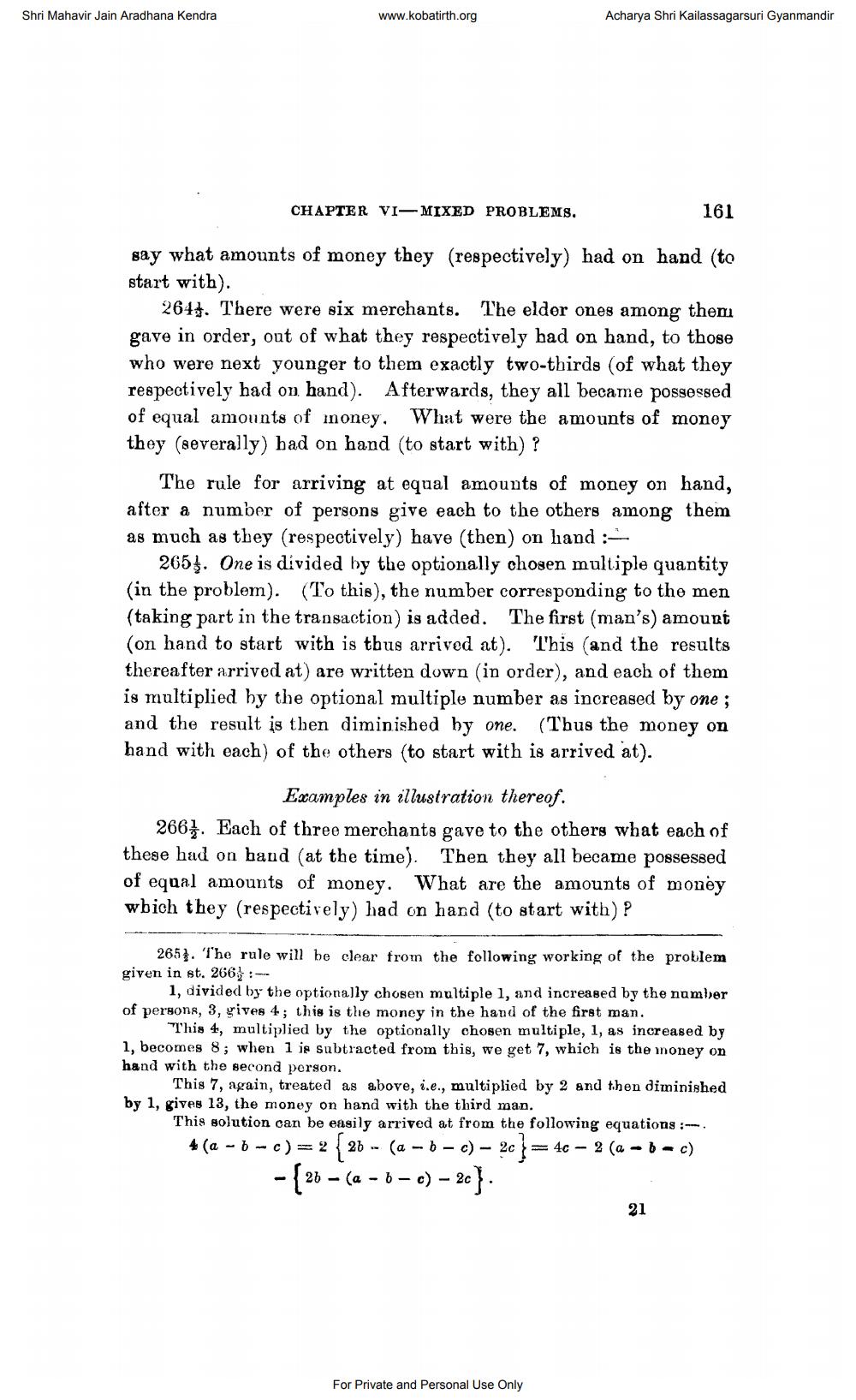________________
Shri Mahavir Jain Aradhana Kendra
www.kobatirth.org
Acharya Shri Kailassagarsuri Gyanmandir
CHAPTER VI- MIXED PROBLEMS.
161
say what amounts of money they (respectively) had on hand (to start with).
2645. There were six merchants. The elder ones among them gave in order, out of what they respectively had on hand, to those who were next younger to them exactly two-thirds (of what they respectively had on hand). Afterwards, they all became possessed of equal amounts of inoney. What were the amounts of money they (severally bad on hand (to start with) ?
The rule for arriving at equal amounts of money on hand, after a number of persons give each to the others among them as much as they (respectively) have (then) on hand :
2655. One is divided by the optionally chosen multiple quantity (in the problem). (To this), the number corresponding to the men (taking part in the transaction) is added. The first (man’s) amount (on hand to start with is thus arrived at). This (and the results thereafter arrived at) are written down (in order), and each of them is multiplied by the optional multiple number as increased by one ; and the result is then diminished by one. (Thus the money on hand with each of the others (to start with is arrived at).
Examples in illustration thereof. 2661. Each of three merchants gave to the others what each of these had on band (at the time). Then they all became possessed of equal amounts of money. What are the amounts of money wbich they (respectively) had on hand to start with)?
2653. The rule will be clear from the following working of the problem given in st. 266} :
1, divided by the optionally chosen multiple 1, and increased by the number of persons, 3, gives 4 ; this is the money in the hand of the first man.
This 4, multiplied by the optionally chosen multiple, 1, as increased by 1, becomes 8; when 1 is subtracted from this, we get 7, which is the money on hand with the second person.
This 7, again, treated as above, i.e., multiplied by 2 and then diminished by 1, gives 13, the money on hand with the third man.
This solution can be easily arrived at from the following equations :-- 4 (a - b-c)= 2 26 -- (a - 6 - 6) – 2c = 4c – 2 (a - b -c)
- {20 – ( - 6 -c) – 2c).
For Private and Personal Use Only




